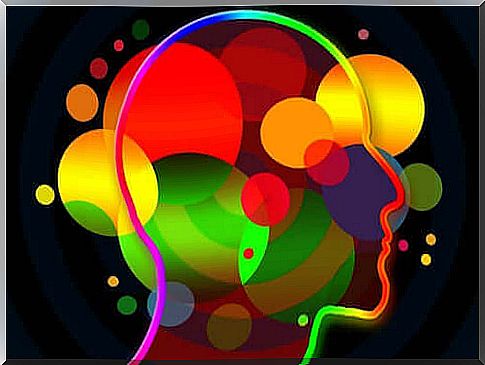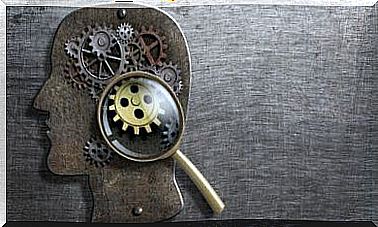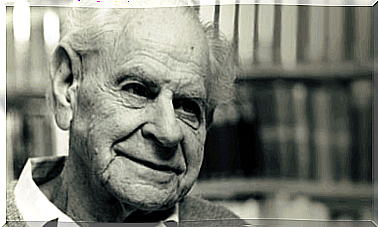What Are The Types Of Intelligence?
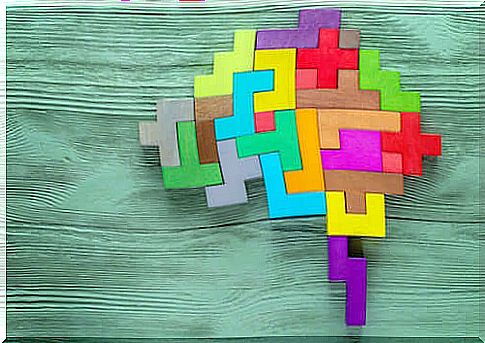
Did you know that there are several types of intelligence? Until very recently, intelligence was considered to be something innate and unchanging. It was believed that a person could be born intelligent or not and that it was impossible (and even difficult) for that to change.
It was also used to believe that a person who displayed intelligence was exceptional in all areas of his life. Howard Gardner questioned this and ultimately raised what is known as the theory of multiple intelligences (1983).
This theory states that there are different types of intelligence and that many of them can be developed through emotional intelligence. Let’s dig deeper.
Being smart doesn’t mean knowing everything perfectly
Gardner defines intelligence as the ability to solve problems or produce products that are valuable in one or more cultures. It does not pose a single intelligence with different characteristics, but a set of multiple, different and independent intelligences.
He thus broadens the scope of what is considered intelligence and asserts that the brilliance of the scientist does not mean that he is smarter in all aspects of his life. To be successful in finance, business, sport, school, you have to be smart. But in each area a specific type of intelligence is used.
It may be that for a given discipline it is necessary to have one of the intelligences. But none is better or less relevant than the others. Thus, to get by in life, the school course is of relative importance.
Stephen Hawking is neither more nor less intelligent than Don Juan or the local greengrocer who is a loving person with his neighbors and customers and has a beautiful family. Neither Einstein is smarter than Lionel Messi, nor Bill Gates than Picasso. They just have different intelligences.
If intelligence is understood as a capacity, it implies a way of constructing the world, of making distinctions, of looking at life. To focus attention on certain aspects of the phenomenon observed depending on the type of intelligence that predominates in a person.
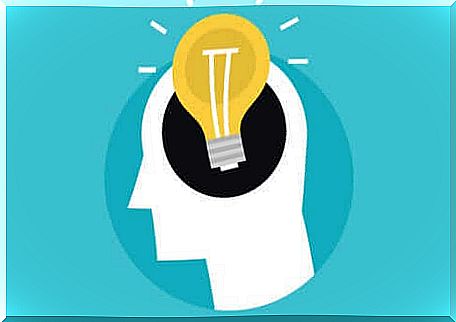
The eight types of intelligence
All human beings are capable of knowing the world in eight different ways, since there are eight types of intelligence described by Gardner. People learn and apply their knowledge in different ways. In fact, Gardner believes that all human beings are capable of amply developing their intelligence.
These differences testify to a predilection for a field of knowledge and constitute a challenge for the education system which structures its program in a universal way, convinced that everyone can learn the same subjects in the same way. So let’s see what the different types of intelligence are.
Linguistic intelligence, one of the eight types of intelligence
Linguistic intelligence is that of political leaders, writers, poets, good publishers. It uses both hemispheres and it seems that both contribute to the processing and understanding of language :
- The left hemisphere deals with the linguistic meaning of prosody. Prosody is the cadence of speech, rhythm, tones and emphasis.
- The right hemisphere processes the emotions communicated by prosody. It involves the ability to understand the order and meaning of words by reading, writing, but also speaking and listening.
In the brain, the Broca area is involved in the processing of grammar, that is, the production of grammatical sentences. And the Wernicke zone, in the understanding of speech.
Logical-mathematical intelligence
Logical-mathematical intelligence is what was historically considered to be “the only intelligence”. It shows the ability to solve math and logic problems.
It has a clear predominance in the left hemisphere. It is the intelligence of scientists, engineers, economists, etc., since it allows deduction, systematization in the construction of hypotheses and their evaluation, the processing of information and the contemplation of many variables simultaneously.
Spatial intelligence
Spatial intelligence is what involves forming a mental model of the world in three dimensions. It is the intelligence of artists, mainly sculptors, architects, sailors, engineers. But also surgeons, decorators, photographers, designers and publicists, among others.
The right hemisphere is the part of the brain responsible for spatial computation. When a lesion is located at the back of the brain in the right hemisphere, the person tends to become disoriented, to no longer recognize faces or scenes.
Spatial problem solving is an ability that is used in navigation, driving a car to get to an unfamiliar place, and even in chess. And of course, in the graphic and visual arts.
It makes it possible to create mental images, to represent ideas and to draw. The selectivity of attention is deposited in the visual details.
Musical intelligence, one of the eight types of intelligence
Musical intelligence is correctly expressed in musicians, singers and dancers, composers, music critics, etc. It allows you to write, create, analyze music. It is the ability to sing, dance, listen, play instruments.
In the right hemisphere there are areas related to perception and musical production that have not been fully localized. In the development of the child, we observe a natural ability and auditory perception (ear and brain) innate in early childhood: the ability to learn sounds, tones, sound instruments.
Kinesthetic bodily intelligence
Body-kinesthetic intelligence is the ability to express oneself through the body and to perform actions that require strength, coordination and balance, speed, flexibility. Or to make repairs or create by the hands. It is the intelligence of craftsmen, athletes, surgeons, sculptors, actors, models, dancers, etc.
The control of movement and the control of the body itself are located in the brain, precisely in the motor cortex. Each hemisphere dominates or controls the corresponding bodily movements on the opposite side.
Beyond gross motor skills, the evolution of specific bodily movements (fine motor skills) is of great importance for the development of the human species … From the ability to coordinate in macro to the resolution of problems involving the ability to handle tools.
It is clear that there is a distinction between solving a problem and using the body to do sports training or expressing emotions through dance. In the first case, bodily intelligence is combined with logical-mathematical intelligence; the rest belongs to the universe of intuition.
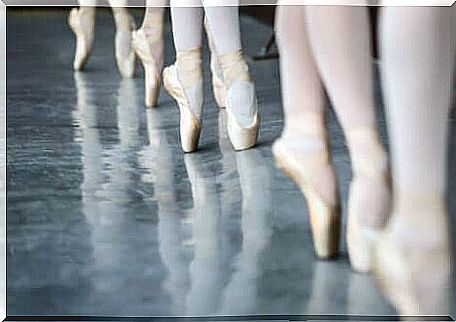
Intrapersonal intelligence
Intrapersonal intelligence is what enables us to know and understand ourselves. To become aware of one’s identity, to access the universe of emotions. To interpret our own behavior in actions, to connect with our own belief system. Everything about connecting with the inner world.
It is the frontal lobes that provide us with the analytical and critical quota on ourselves. The prefrontal lobes provide us with moral values.
Intrapersonal intelligence is the ability to set goals. To become aware of your capacities and to give them a lesson, to know your own potential according to the objectives.
It implies being able to reflect on oneself, to generate self- knowledge in order to give the best in the environment. In other words, it allows us to better understand ourselves and to work on ourselves.
Fundamentally, this analysis and reflection on oneself is the basis that emphasizes personal identity. This is what allows us to have a place in the systems.
Interpersonal intelligence
Interpersonal intelligence is what enables us to understand others. Including working with people, as well as helping people identify and overcome problems. For such reasons, it is often found in good salespeople, political and religious leaders, professors or therapists and teachers.
It is the ability to detect moods, personality characteristics, expectations in others. It is the ability to capture intentions, to read implicit language, paraverbal messages. It’s about being able to act in the most effective way and showing empathy in relationships.
The frontal and prefrontal lobes play an important role in interpersonal knowledge. Beyond phylogenetics, human beings integrate systems that lead to social interaction, cooperation, solidarity, help, leadership, elements that generate group cohesion and harmony.
Naturalistic intelligence, the last type of intelligence
Naturalistic intelligence is the ability to observe and study nature, for the purpose of knowing, classifying and ordering it. It is the intelligence of biologists and botanists who group together species or groups of objects and people and establish differences and similarities between different members.
Gardner pointed out that this intelligence had its origins in the need of primitive man to adapt to context. The latter had to recognize which species allowed him to feed and which were harmful. He also had to know how to adapt to the climate and its changes in order to be able to take shelter and protect himself from dangers.
Naturalists are often skilled at observing, identifying and classifying members of a group or species, or creating new typologies. They have the ability to recognize flora and fauna.
However, this intelligence can also be applied in any field of science and culture. Because the characteristics of this intelligence are the characteristics of people who devote themselves to research and systematically apply the scientific method.
Types of intelligence: being intelligent is being aware of who we are
When you read each of the types of intelligence and their descriptions, you will certainly recognize yourself in one or more of them. This is perfectly normal and also very useful.
Being aware of the type or types of intelligence we have gives us the opportunity to recognize our limitations and abilities. As well as to train ourselves in those in which we do not consider ourselves so good. Polishing the intelligence we have and improving our deficit is one way to improve ourselves.
